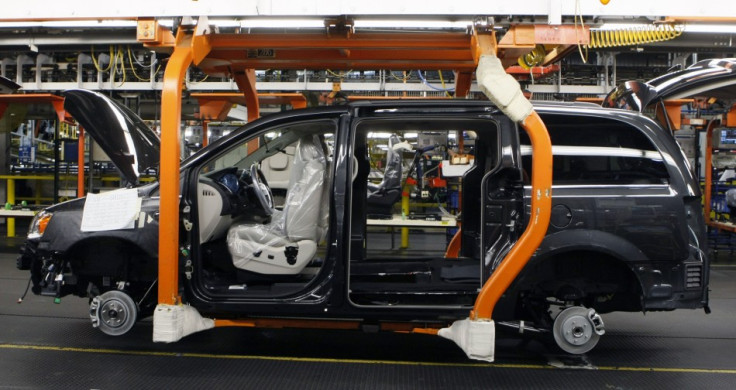Germany powering ahead of the US in Internet of Things solutions
German companies are more eager and quicker than their US peers to implement these new technologies.

As the Internet of Things (IoT) revolution continues to inspire an endless torrent of interconnected gadgets and smart devices, the United States is continuing to ramp up its investments and energy into the lucrative market. However, despite Silicon Valley's ambitious venture into the sector, German manufacturers are powering ahead in implementing digital and IoT solutions compared to their American peers.
According to a new survey from Boston Consulting Group that polled more than 600 managers and senior executives representing over 300 German and US companies, the Germans are keener to adopt "the new industrial technologies that are collectively known as Industry 4.0" than their US counterparts.
The report found that German manufacturers are "off to a somewhat faster start of implementation despite the common perception that US companies are the front-runners in embracing digital transformation."
While companies on both sides of the pond associate Industry 4.0 with increased productivity, cost reduction and revenue growth, around 19% of German companies have already implemented or have taken the first steps towards applying digital and IoT solutions into their facilities compared to 16% of US companies.
About 47% of the German companies surveyed have already developed their first full Industry 4.0 concepts, only 29% of US companies have done the same. Moreover, only 18% of German respondents say their companies are not prepared to introduce IoT solutions into their facilities, about 41% of US respondents said their companies are not prepared either.
Moving forward, German companies are also much more eager than their US peers in terms of their future plans to implement these new technologies. Approximately 60% of German manufacturers have applied or plan to apply digital factory logistics or predictive maintenance within the next year or two. In contrast, about 40% of US manufacturers are planning to do the same.
"German companies' strong ambitions for Industry 4.0 reflect their need to overcome the challenges of significant factor costs that arise from high wages and a less-flexible labor market," the report reads. "These factor costs encourage companies to strive for greater productivity and, thus, promote faster adoption of new technologies."
"The fast pace of adoption in Germany is also fueled by companies' advanced industrial-manufacturing capabilities. Companies can apply these capabilities to accelerate the introduction of new digital technologies, thereby reducing costs, increasing flexibility, and accelerating the speed of manufacturing."
The report also notes that as global manufacturing rates continue to rise, automated technologies is likely to become a major trend in manufacturing operations within the next decade.
According to the International Data Corporation (IDC), the global IoT market is expected to be worth $1.7tn by 2020.
However, survey respondents did say data security and investment needs are the biggest challenges to the successful implementation of IoT technologies.
According to technology research firm Gartner, predicted global spending on IoT security will reach a whopping $348m (£239m) in 2016, $434m in 2017 and $547m in 2018.
The report notes that such investments paired with the right knowledge and digital manufacturing strategies are "essential for maintaining competitiveness."
"The early adopters have set a fast pace for implementation and are building capabilities that will enable them to increase their lead," the report notes. "To maintain their competitiveness, all companies will need to accelerate their efforts along the Industry 4.0 journey."
© Copyright IBTimes 2025. All rights reserved.





















